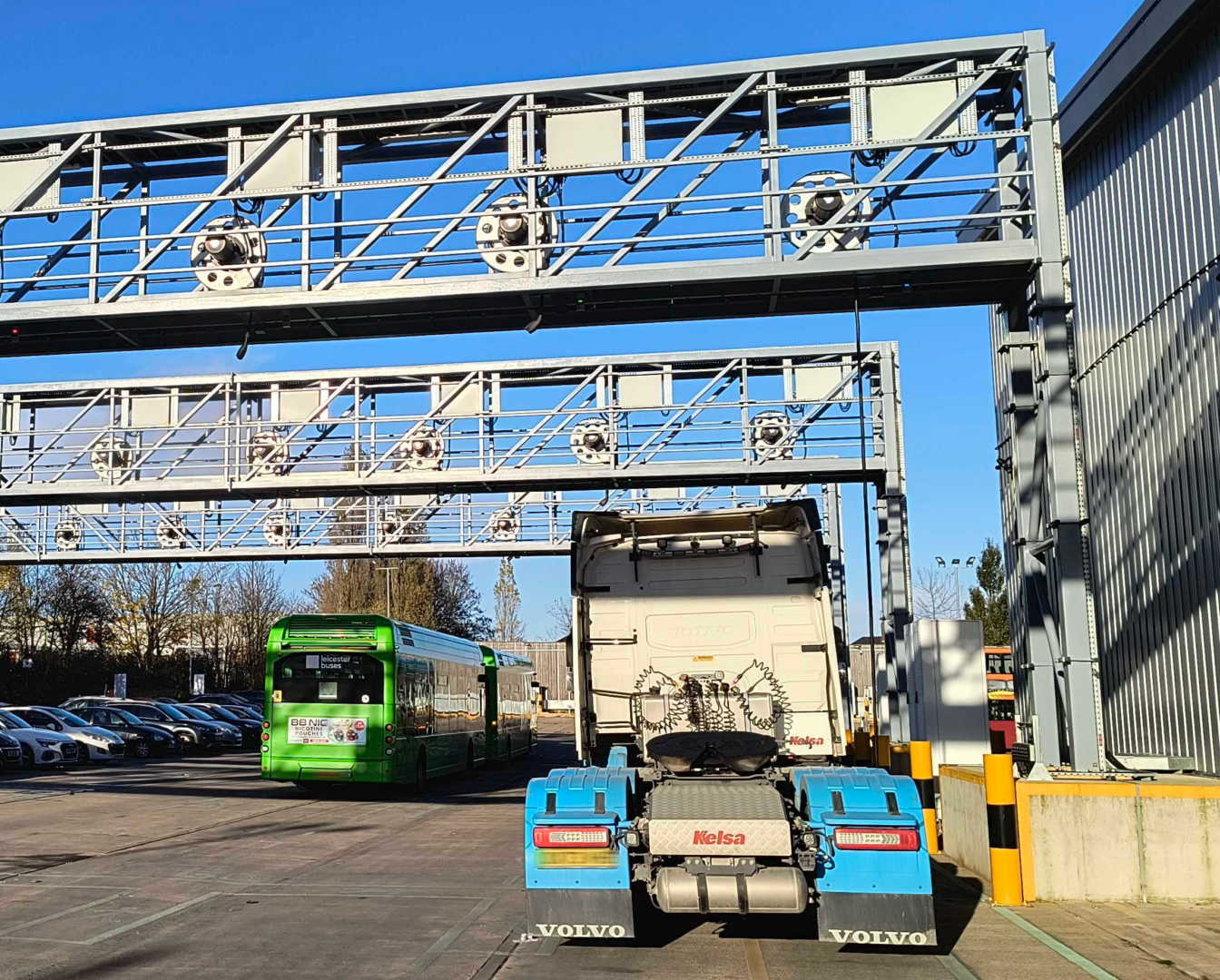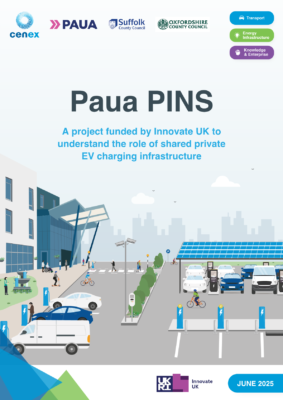

Paua PINS: Shared Private EV Charging Infrastructure Report
Resource
Summary
The Paua PINS (Private Infrastructure Network Solution) project, funded by Innovate UK, demonstrated the role that a shared private infrastructure network can provide to support local authorities (LAs) and businesses as they electrify. Currently, this can only be implemented via private bilateral agreements and has been deployed on a relatively small scale. However, the solution discussed within this project aims to scale up infrastructure sharing and to show how this can be extended to a wider variety of host depots, who own or operate the site where the chargepoints are located, and visitor fleets, who will drive into the site and use the chargepoints.
The solution seeks to overcome the challenges associated with the sharing of private/restricted electric vehicle (EV) charging infrastructure through research and demonstration with key partners. The solution will enable the sharing of private host depots with visitor fleets to start the formation of a shared private network in partnership with Suffolk and Oxfordshire County Councils. This white paper presents the qualitative and quantitative implications of PINS.
Key Points
- Not all fleets can transition without assistance – Emergency, utility, and delivery fleets often face challenges such as range limitations, security concerns, and infrastructure issues that hinder their ability to switch to EVs, especially when they cannot charge at their depots or homes.
- Depot chargepoints present new charging opportunities – By utilising underutilised private depot chargers during off-peak hours, visiting fleets can experience reduced downtime, access secure locations, and avoid unreliable or costly public charging options.
- There is a strong economic case for both hosts and visitors – Fleets can reduce charging costs by 9% to 50%, while depot owners can recover their infrastructure investments with moderate additional usage, achieving an ROI of up to 63% over 10 years.
- Cenex’s matchmaking tool – Assists fleets in identifying the depot types that best align with their operational needs, facilitating the formation of successful partnerships more quickly.
- Social, policy, and technical barriers must be addressed – Legal frameworks, employee engagement, charger reliability, and GDPR-compliant data-sharing protocols are essential for scaling the PINS model.
- Significant environmental benefits – Shared depot charging could enable fleets to electrify vehicles they otherwise couldn’t, potentially delivering up to 37% well-to-wheel CO₂ emissions savings and nearly halving nitrogen oxides (NOx) and particulate matter (PM2.5) emissions.



